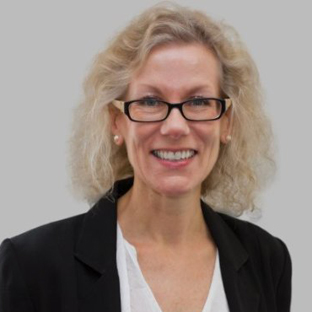Scaling up health innovations is essential if we are going to better meet the needs of millions of people around the world. Vincent Smith FRSA and Lesley-Anne Long FRSA argue that real collaboration has to play a central role in making this happen.
At last year’s Global mHealth Forum in Washington D.C., no less than seven sessions had ‘scale’ in their title. ‘Scaling’ is the exciting notion of taking a great idea from a small innovation and extending its impact from a few to potentially millions of people. It is the Holy Grail for health innovation. Because of this, it was the number one topic for discussion and not for the first time. But years of debate, thoughtful research and a global health community focused on a shared goal has spectacularly failed to achieve scale with a handful of notable exceptions. So why can’t we scale and, more importantly, what can we do about it?
There are well-known components to designing for scale; this includes a Ministry of Health mandate, shared standards and committed leadership. We suggest that potentially the most important component, and where the biggest gap exists, is meaningful collaboration, which is much more likely to produce fundamental and sustainable change at scale.
So what’s stopping us? Unfortunately good collaboration can be crushed by competition for the next great grant opportunity. It is relegated to the shadows by the dazzle of being the organisation potentially to create the great new solution; the allure of the ground-breaking, instead of the foundation building. Collaboration needs massive and on-going injections of energy and this involves real leadership. Consensus building and agenda driving. Being flexible and focused on results. Meeting people where they are at and being impatient for change. This is hard, relentless work. Getting adequate funding for core functions in a collaboration is tough. The institutional part isn’t sexy, but it is essential. Finally, collaborations find it hard to measure contributions of their membership to an overall goal, therefore failing to build a clear message about their achievements that retains their support over time. The people involved need tangible results to celebrate. What we need is a new way of thinking about collaboration that drives action and attracts the resources needed to make it reality.
Jeffrey C. Walker (co-author of The Generosity Network) explains the dynamics of collaboration as if it were a jazz band. He recalls that when he started playing in a jazz band in seventh grade, one of the first things he learned was the difference between being a good soloist and being part of a great ensemble. He quickly realised that it is not enough to be skilled at playing your own instrument. To play great music, you need to learn to listen to everybody else's sound, develop the flexibility to let your rhythms and harmonies mesh with theirs, and give others the freedom to improvise. Little by little, you find yourselves producing, as a group, musical creations that soar above the capabilities of any single performer.
As with music, so in global health. Jeff outlines three actions we can apply to the health sector. Firstly, start by identifying an honest broker to coordinate the collaboration; a person who is highly skilled in building partnerships. Next, put together a Key Influencer Map to identify the people and organisations that need to be involved. Then, meet with those influencers to launch the collaboration. This group becomes the enabler – the glue that holds the collaboration together – as it attracts more individuals and organisations around the common cause and shared goal. The group is tasked with sharing knowledge, gathering resources, tracking outcomes, and holding the key stakeholders accountable for their commitments until the shared goal is achieved.
But what holds us together? In addition you need core values that unify and guide collaboration activities. The MDG Health Alliance – an effective collaboration – identifies several factors that are critical for success. They say trust between partners is a core feature of change. Honesty and integrity should always drive relationships. Partners must be empowered. The ‘need to be right’ has to be minimised and partners must remain adaptable and flexible. Everyone needs to maintain a focus on game-changing opportunities, only pursuing levers for bold, catalytic change. Partners need to work toward measureable results with a sense of urgency whilst upholding purity of purpose. Remaining independent comes within being mindful too: everyone involved has a right to a healthy life. Having empathy and compassion for those you serve needs to upheld whilst inspiring and actively supporting one another.
Global health problems are too complex for single organisations to create scalable, lasting change. We need to bring resources together, put egos aside and problem solve. Funders need to align what they say with how they act. Collaborations must measure and communicate their achievements clearly to build confidence both within their memberships and outside. We know that collaboration is just one aspect of designing for scale. On its own it is not enough. But we believe that without genuine collaboration there is a very real risk we cannot achieve it at all.
Lesley-Anne Long is the Global Director of mPowering Frontline Health Workers, a USAID Global Development Alliance spanning public and private sectors focused on ending preventable maternal and child deaths by accelerating the use of mobile technology to improve the skills and performance of frontline health workers.
Vincent Smith is Director of STAND, which is a consultancy that helps socially progressive people and organisations around the world to confidently connect their strategy and activity. STAND advises mPowering on strategy, funding and organisational development.
Related articles
-
Earth Day: why it needs to be every day
Phillip Ward
This year’s Earth Day focuses on plastic pollution. It’s a massive problem that must be addressed, but we need to go beyond one-day initiatives to instil a sense of urgency in responding to all the issues we face.
-
Making the most of your late career
Ann Thorpe
How do you harness your potential in the last chapter of your career? Ann Thorpe explains how the Late Career Alliance could help to craft your career narrative, impact and legacy.
-
Living better for longer
Peter Gore
There is an inevitability that we will be able to do less as we get older, but everyone can influence when this happens. Peter Gore argues that we must reject age stereotypes and promote ‘healthy ageing’.




Be the first to write a comment
Comments
Please login to post a comment or reply
Don't have an account? Click here to register.